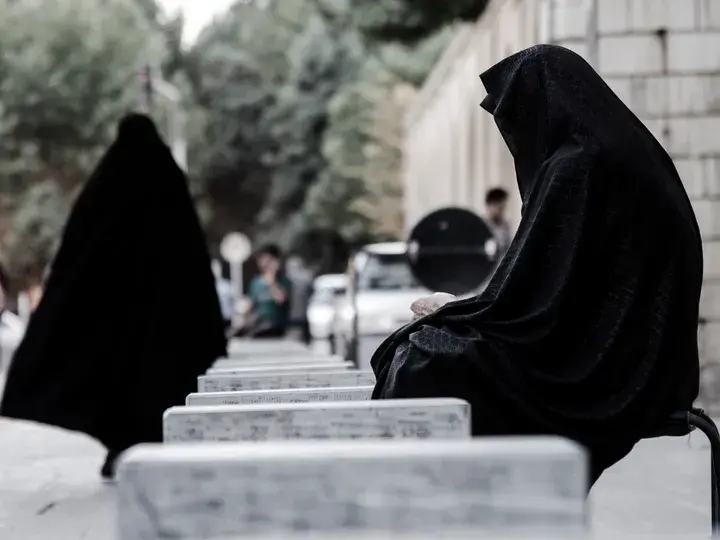In Iran, women face various restrictions, including the prohibition of dancing and singing in front of men.

Iranian authorities have arrested two women for dancing in the streets of Tehran, dressed as ‘Hayi Firuz,’ a comical character announcing the arrival of Nowruz, the Persian New Year.
“By order of the Tehran Prosecutor’s Office, these two individuals were arrested, and legal proceedings have been initiated,” reported the Tasnim agency on Saturday, a day after International Women’s Day.
The Prosecutor’s Office asserts that these individuals were detained for violating the law, as dancing by women in public or in the presence of men is prohibited in Iran.
These arrests followed the viral spread of a video on social media showing the girls dancing in one of the main squares of the capital, Tajrish, dressed in red with a conical hat, pointed shoes, and their faces painted black—the typical attire of ‘Hayi Firuz.’
‘Hayi Firuz’ is a comical character that appears in the final weeks of the Iranian year in the streets, singing and dancing to announce the arrival of Nowruz, marking the first day of spring and the beginning of the Persian year.
In Iran, women face various restrictions, including the prohibition of dancing and singing in front of men, with even female singers limited to performing for women only.
Adding to these issues is the matter of the hijab, a cause of massive protests across Iran in September 2022 after the death in custody of Mahsa Amini, a 22-year-old detained for allegedly improperly wearing the Islamic veil.
These protests ended months later with a brutal crackdown resulting in around 500 deaths and 22,000 detentions.
Besides this issues, Iran recorded the highest number of executions in nearly 10 years, with the regime hanging 834 people in 2023. This marked the highest count since 2015, with a 43% increase from the previous year.
It was the second time in two decades that over 800 executions occurred in a year, following the 972 executions in 2015, as reported by Iran Human Rights and Together Against the Death Penalty.
The groups accused Iran of using the death penalty to instill fear in society following the protests triggered by Amini’s death in 2022 while in police custody. Nine men have been executed for attacking security forces during the protests—two in 2022, six in 2023, and one so far in 2024, according to the groups.
Executions also rose in other categories, notably drug-related cases, which had declined in recent years. The dramatic increase in drug-related executions in 2023, reaching 471 people, is of particular concern, more than 18 times the 2020 figure, according to the report.
Members of ethnic minorities, particularly Sunni Baluchis in southeastern Iran, are disproportionately represented among those executed for drug charges, with at least 167 Baluchi minority members executed, comprising 20% of the total executions in 2023, despite representing only 5% of the Iranian population.







